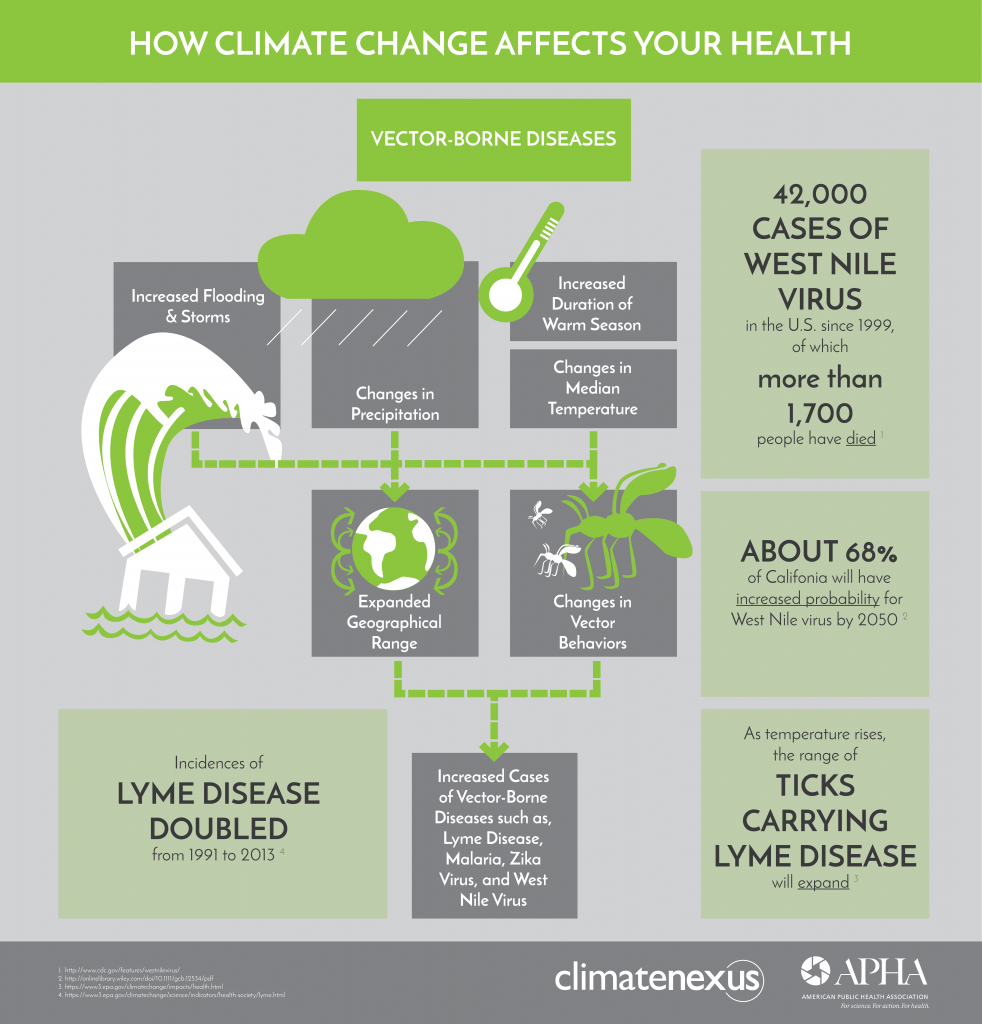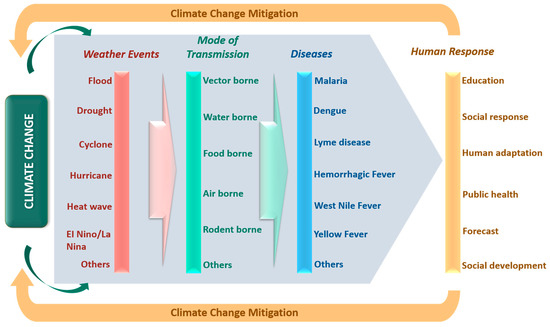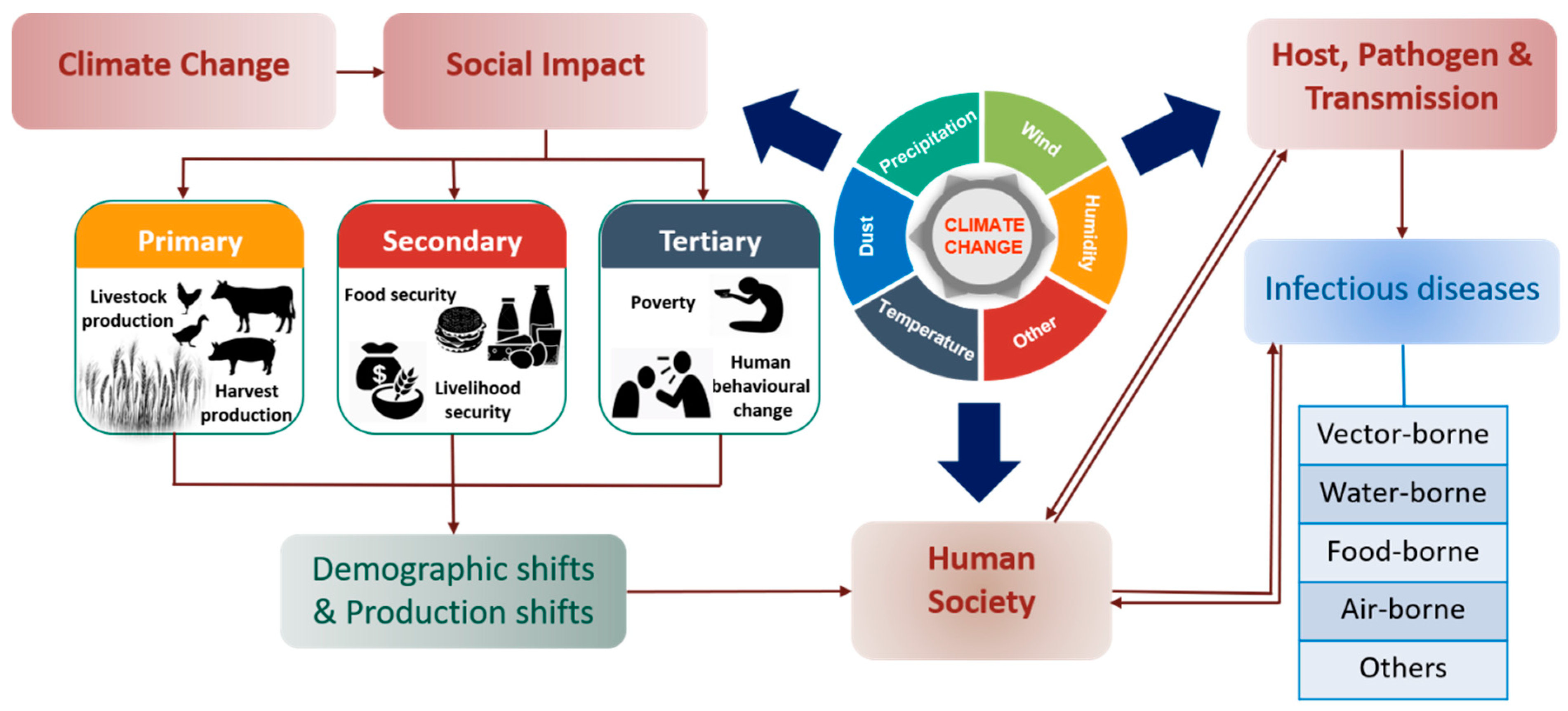Climate Change And Vector Borne Diseases In India
How Climate Change Has Altered the Rules of Odishas Battle Against Vector-Borne Diseases Indias goal of eliminating malaria by 2027 rests heavily on Odisha. Most are zoonotic diseases of multiple etiologies which can spread between humans and animals by arthropod.
 Climate Risk And Spread Of Vector Borne Diseases Climate Nexus
Climate Risk And Spread Of Vector Borne Diseases Climate Nexus
In the face of ongoing climate change we.

Climate change and vector borne diseases in india. In a statement Stanford scientists claim climate change is altering breeding grounds of disease-carrying mosquitoes shifting the burden of disease across the globe. Timor-Leste now faces an ongoing risk of waterborne diseases such as cholera typhoid fever and hepatitis A and vector-borne diseases such as malaria and dengue. BY Rob Jordan Stanford Woods Institute for the Environment.
Climate changes in terms of increased average temperatures more intense rainfall extended summer season and less intense winters can impact the range and incidence of infectious and vector-borne diseases. And iii effective measures to increase the resilience of healthand health programmesto long-term climate change while also reinforcing current disease. New reservoir areas of cutaneous leishmaniosis in South India have been recognised and the role of climate change in its re-emergence warrants further research as does the role of climate change.
As the globe warms mosquitoes will roam beyond their current habitats shifting the burden of diseases like malaria dengue fever chikungunya and West Nile virus. Especially the focus is on climate change impacts in terms of increased severity frequency and spread of vector-borne diseases. Climate affects vector-borne diseases on an annual basis and in the long-run climate change will likely alter the distribution and occurrence of West Nile virus Lyme disease hantavirus and other insect or animal transmitted diseases in California.
Ii whether these may either undermine or overwhelm the effect of control programmes. These include parasitic diseases such as leishmaniasis lymphatic filariasis and onchocerciasis and tick-borne diseases and the effect is due to the impact of climate on the relevant vector populations. Climate is one of the factors that influence the distribution of diseases borne by vectors such as fleas ticks and mosquitoes which spread pathogens that cause illness.
How to reduce sources of stigma. Many infectious diseases including vector borne are climate sensitive where their emergence in a region is dependent on climate related ecological changes. Vector-borne zoonoses now occur in epidemic form almost on an annual basis causing considerable morbidity and mortality.
Climate and Vector-Borne Diseases - Malaria - African malaria epidemics triggered by climate anomalies that follow periods of drought DeSilva et al. Climate as one of many interacting determinants of vector-borne disease. From undetected disease to diagnosis to support.
Against this context health agencies engaged in control of vector-borne disease need to consider i the scale and nature of the risks that climate change may present to vector-borne disease control by disease and location. And annual incidence of malaria in India. The geographic and seasonal distribution of vector populations and the diseases they can carry depends not only on climate but also on land use socioeconomic and cultural factors pest control access to health care and human responses to disease.
Stanford researchers say climate change will increase risk of vector-borne diseases spreading to countries characterised by cooler climate till now. Vector-borne diseases are among the most well studied of the diseases associated with climate change owing to their large disease burden widespread occurrence and high sensitivity to climatic factors. Climate Change and Vector-BorneZoonotic Diseases Kenneth L.
In recent years vector-borne diseases have emerged as a serious public health problem in countries of the South-East Asia region including India. To higher altitudes and latitudes. While dengue Japanese encephalitis and chikungunya virtually unknown in the Odisha until the past decade are rapidly increasing and the season conducive for the spread of such diseases has been extending to virtually half the year found a study.
Climate change is already affecting vector-borne disease transmission and spread and its impacts are likely to worsen. Climate change is rapidly having an impact on the spread of vector-borne diseases. Improvements in vector-borne disease control strategies will have a direct impact on human populations through reducing the burden of established vector-borne diseases or preventing future outbreaks in vulnerable populations.
It is unequivocal that climate change is happening and is likely to expand the geographical distribution of several vector-borne diseases including malaria and dengue etc. Researchers forecast different scenarios depending on the extent of climate change. But a changing climate and the increased proliferation of vector-borne diseases has led to new challenges.
In addition while climate and climate change are extremely likely to influence the future transmission and range of vector-borne diseases the magnitude of the effect is likely to vary between diseases. Surveillance is critical to monitor changing patterns and mitigate public health risk. Climate change might also affect other vector borne diseases endemic to South Asia.
India is endemic for six major vector-borne diseases VBD namely malaria dengue chikungunya filariasis Japanese encephalitis and visceral leishmaniasis.
 Global Change And Human Vulnerability To Vector Borne Diseases Clinical Microbiology Reviews
Global Change And Human Vulnerability To Vector Borne Diseases Clinical Microbiology Reviews
 Ijerph Free Full Text Aggravation Of Human Diseases And Climate Change Nexus Html
Ijerph Free Full Text Aggravation Of Human Diseases And Climate Change Nexus Html
Climate Risk And Spread Of Vector Borne Diseases Climate Nexus
Climate Change And Insect Borne Disease Facts And Figures Scidev Net
 Climate Change Could Shift Disease Burden From Malaria To Arboviruses In Africa The Lancet Planetary Health
Climate Change Could Shift Disease Burden From Malaria To Arboviruses In Africa The Lancet Planetary Health
How Climate Change Could Impact The Future Of Infectious Diseases
 Pdf Climate Change And Threat Of Vector Borne Diseases In India Are We Prepared
Pdf Climate Change And Threat Of Vector Borne Diseases In India Are We Prepared
 Pdf Climate Change And Its Effects On Vector Borne Diseases In India
Pdf Climate Change And Its Effects On Vector Borne Diseases In India
 Mosquito Borne Diseases Debugged
Mosquito Borne Diseases Debugged
Human Health And Climate Change
 Pdf Climate Change And Vector Borne Diseases
Pdf Climate Change And Vector Borne Diseases
 Ijerph Free Full Text Aggravation Of Human Diseases And Climate Change Nexus Html
Ijerph Free Full Text Aggravation Of Human Diseases And Climate Change Nexus Html
 Mosquito Borne Diseases Debugged
Mosquito Borne Diseases Debugged
 How Does Climate Change Affect Disease
How Does Climate Change Affect Disease
Workshop Overview Global Health Impacts Of Vector Borne Diseases Workshop Summary The National Academies Press
Climate Risk And Spread Of Vector Borne Diseases Climate Nexus
 Global Change And Human Vulnerability To Vector Borne Diseases Clinical Microbiology Reviews
Global Change And Human Vulnerability To Vector Borne Diseases Clinical Microbiology Reviews
Climate Change And Insect Borne Disease Facts And Figures Scidev Net

Post a Comment for "Climate Change And Vector Borne Diseases In India"